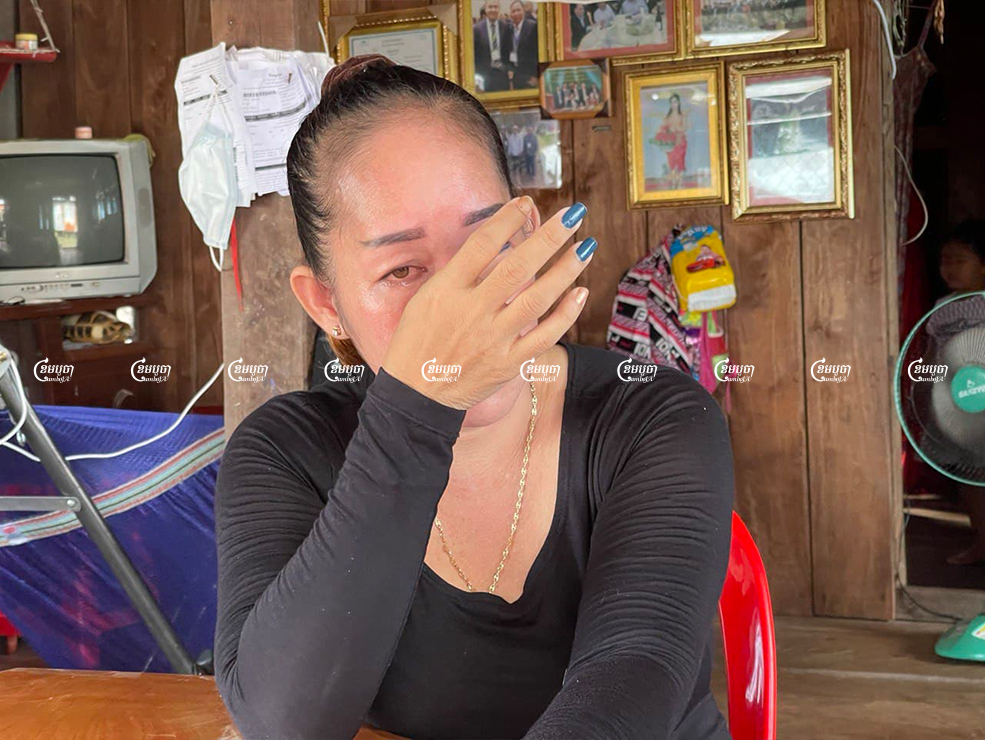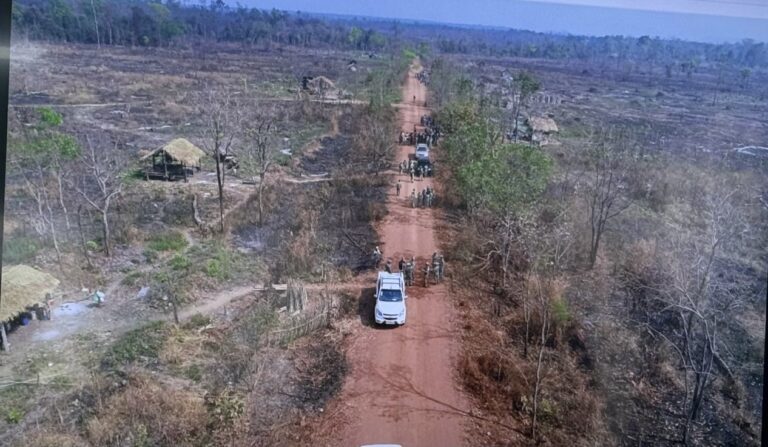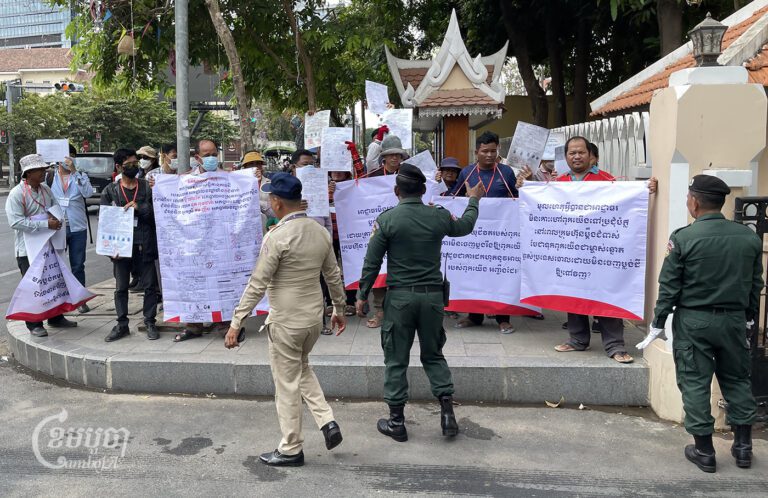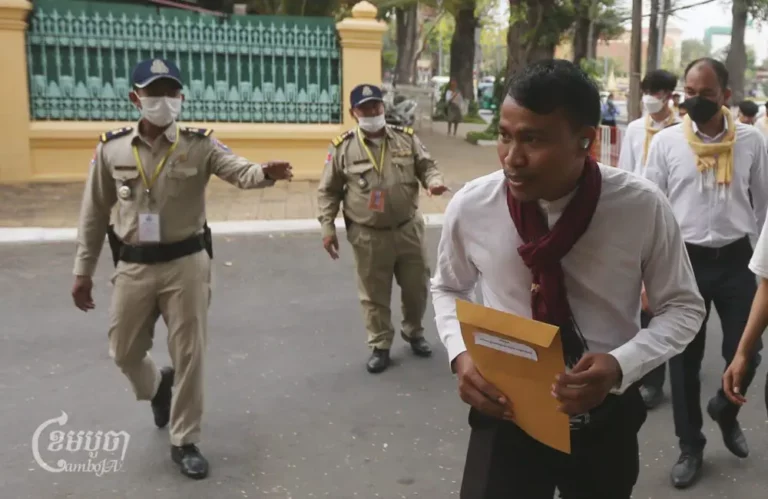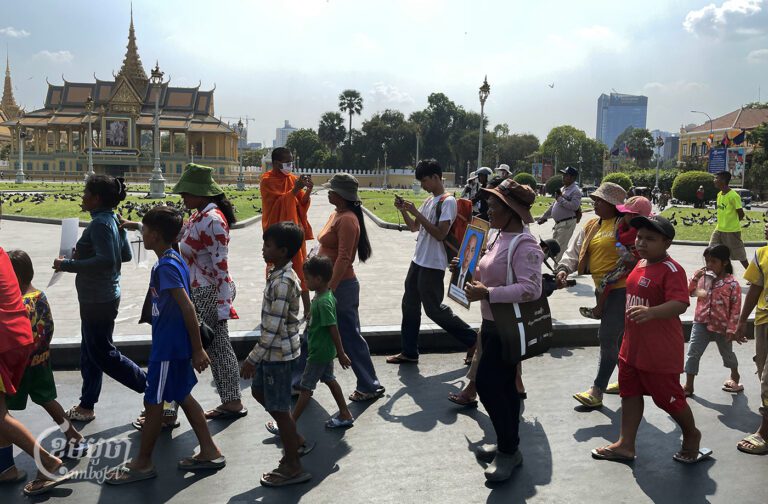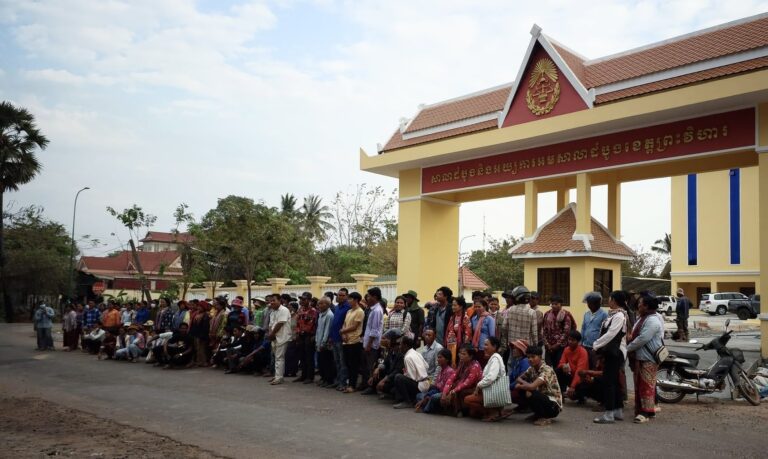Koh Kong Province’s Botum Sakor district: Ouch Vanthan, the wife of imprisoned online news publisher Yuon Chhiv, has spoken out about her husband’s arrest over his reporting on a land dispute in a protected area at the Botum Sakor national park.
The 42-year-old mother of two said that before her husband’s arrest, several villagers came to ask Chhiv to help share information about their ongoing evictions in Chamkar Leu and Chamlornkor villages in Thmar Sar commune.
“I have just known that villagers came to ask him to help at their homes, which were destroyed by [authorities]” she said.
Vanthan lives with her four-month-old son and four-year-old daughter in a wooden house rising from the sea in Prey Kralorm village. Now that her husband is behind bars, she said, she doesn’t know how she will be able to provide for her family.
“I was shocked after hearing he was arrested and I don’t know what to do while he is being held in prison,” she said. “I am facing hardship, that I cannot do anything due to looking after a baby at home.”
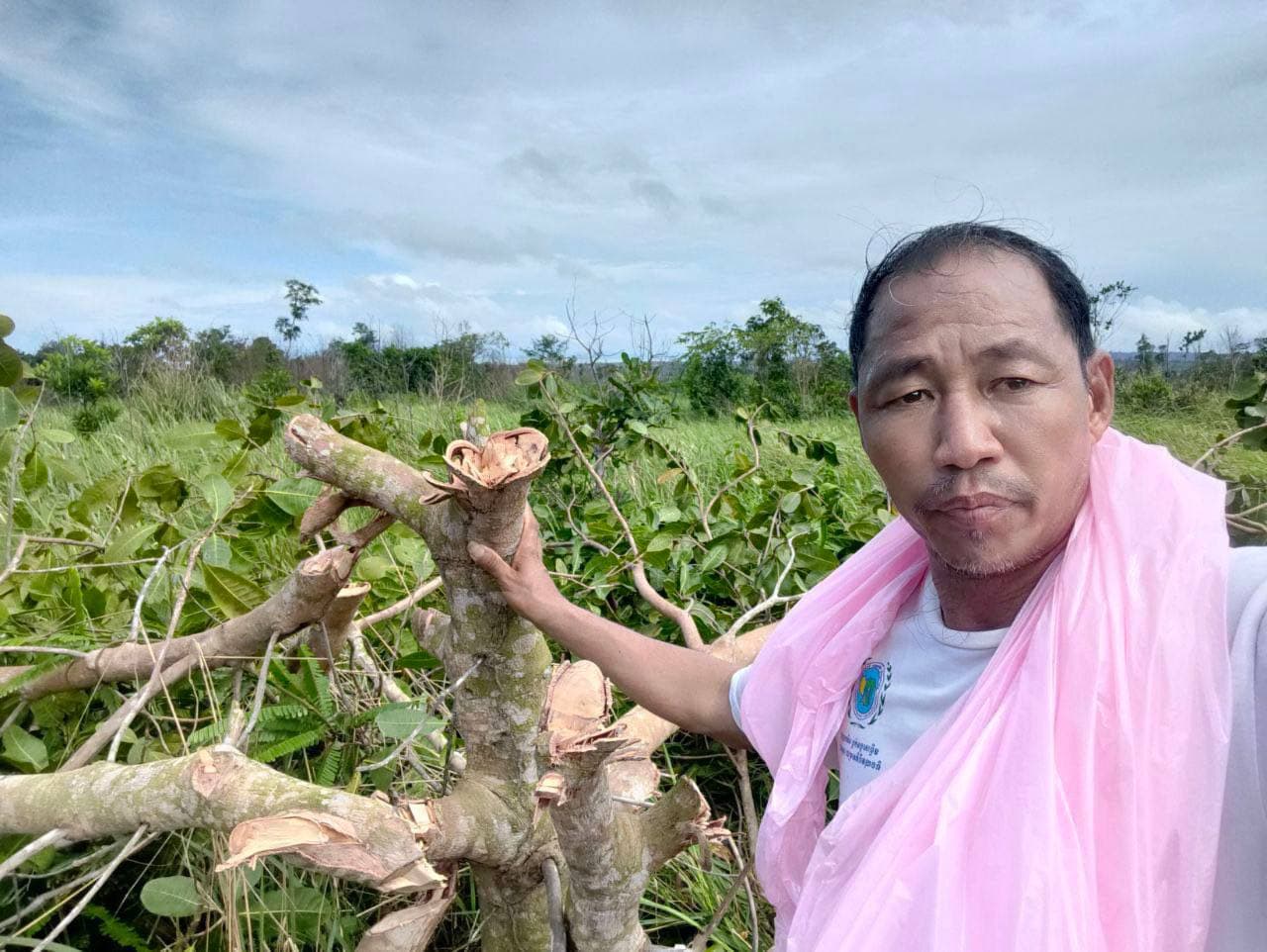
News publisher Yuon Chhiv was arrested at the end of September and sentenced to one year in prison on charges of incitement to commit a felony for broadcasting what officials say is disinformation that the government had excluded public land in Thmar Sar commune to the villagers for their private use.
The publisher had previously posted comments on Facebook on September 9 and 10 saying that deputy provincial governor Sok Sothy had led about 100 police to forcibly evict the villagers, destroying their homes and crops in the process. Chhiv also wrote that Sothy and other authorities were refusing to adhere to Sub-Decree 30, a measure signed by Prime Minister Hun Sen in March that excluded land from the national park for private use.
The arrest was carried out at the orders of National Defense Minister Tea Banh after deputy provincial governor Sok Sothy lodged a complaint against the publisher, saying that Chhiv had directly criticised him in comments made on Facebook through his media outlet Koh Kong Hot News.
Vanthan said that her husband also owns some land at the location where villagers confronted authorities, but she maintained that she didn’t know how many hectares.
Before his arrest, she said, her husband had been responsible for their daily expenses.
“If he remains in prison, I will be facing more hardship in terms of livelihood.”
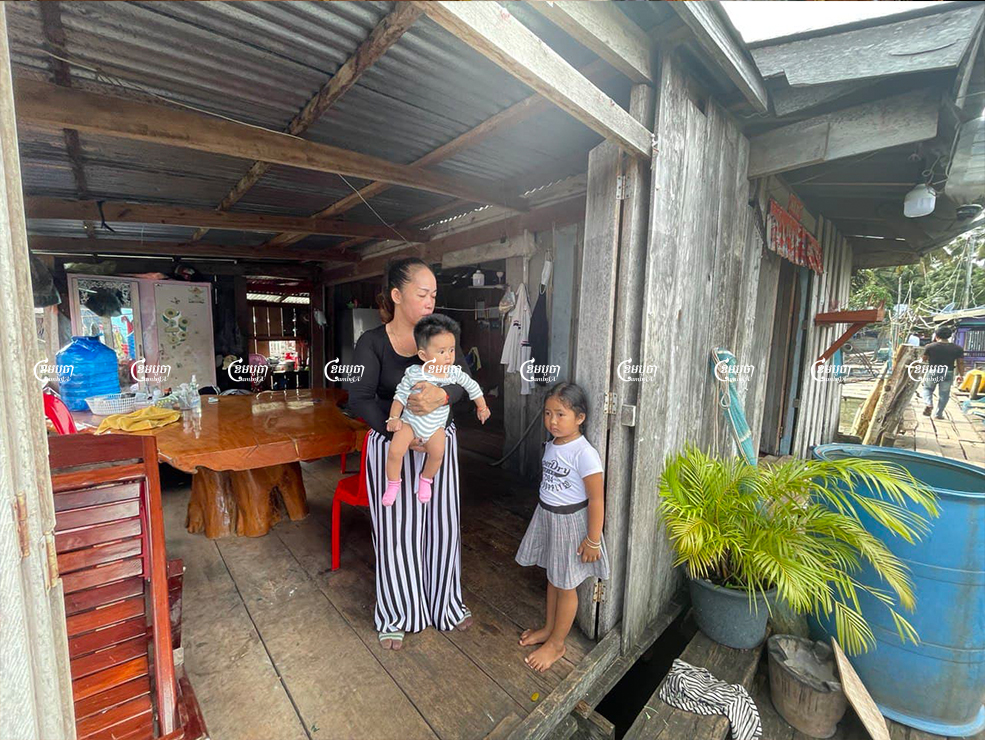
Thmar Sar commune chief Ith Koun told CamboJA that Chhiv’s arrest was not just related to insulting officials, but inciting villagers to occupy state forest land in a protected area.
“Yes, it also involved the land dispute, because he came to clear forest at the national park,” he said.
Koun claimed that Yuon Chhiv had gathered together villagers to thumbprint a petition submitted to the provincial level and the relevant ministries requesting ownership rights.
“He used villagers as a shield,” Koun said. “He bought the land from villagers, but no officials dared to sign [to authorise his ownership] for him,” he said.
He said that roughly 110 families had illegally cleared that land between 2018 and 2020 despite being prohibited many times by authorities.
Local authorities have accused Chhiv of hiring villagers to clear national park forestland in order to sell it to private interests, as well as threatening to demand money in exchange for broadcasting news.
“He told us to crack down on domestic fishing and if we don’t follow him, he will post on Facebook, and he accused us of not cracking down on crime,” Kuon said.
“He used to demand money from me, but I have never given it to him,” he said.
Nai Sy, 60, a villager who was evicted from her land last month, said that she occupied about four hectares in the O’yoya area in 2007, located in Chamlorngkor village.
“I have 16 family members in my household, and each has occupied about three hectares each,” she said.
“I agree that I have occupied state land, but land in Thmar Sar commune isn’t legal because from offshore to the hill, the land has not been excluded,” Sy said.
“I submitted the request to swap the land because I don’t have that land for cultivating,” she said.
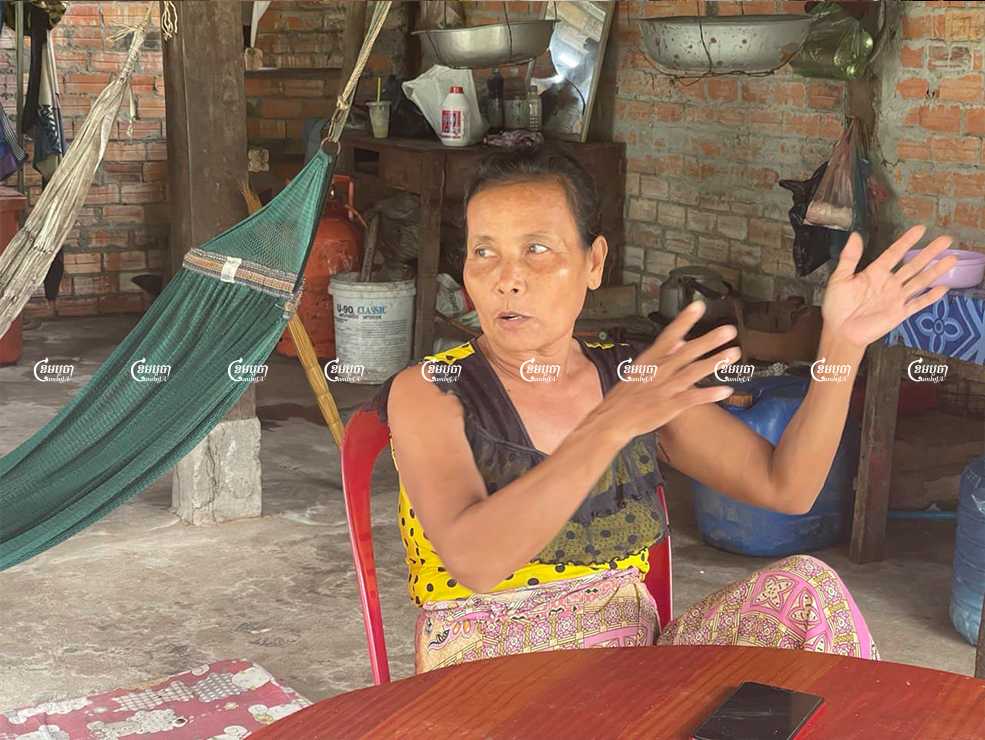
She said that she often goes secretly to her farmland to dig up casava, fresh lemongrass and rice, even though they have prohibited it, in order to make a living. In September, she said, authorities and ranger officials came to destroy villagers’ crops and cottages built on the land.
“I don’t know exactly where the land is legal and illegal, and I still have to go to my farmland,” she said. She explained that the land in this area was not titled, and that even when locals bought land from one another, local authorities would refuse to officially recognise the exchange.
Sy said that after the government revoked their farmland in September, Chhiv came to her house and asked her to cooperate in demanding the land back, saying that he would submit documents to the top levels asking that the land be excluded for public use.
“He came to contact me for letting him disseminate [information about the land dispute] but I didn’t cooperate with him, because I had already separately submitted a request and am awaiting a resolution,” she said.
“I heard that he was arrested but I don’t know the exact reason,” she said.
Sub-Decree 30 has been explained by the government as a measure to redistribute almost 127,000 hectares of land across eight conservation zones, including in Botum Sakor National Park, to villagers and other locals who had inhabited it before the territory was placed under protected status. However, outside observers say powerful figures connected to the government are the main benefactors of the privatization move, not local smallholder farmers.
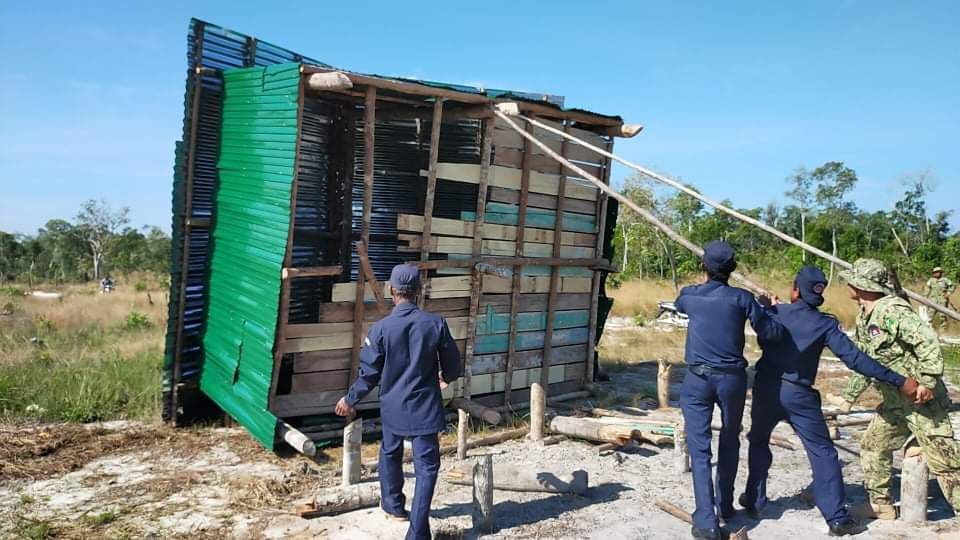
A reporter who lives in Koh Kong, who asked not to be named out of concern for his personal security, said that Chhiv was the most active reporter about land disputes — a “sensitive issue” in Koh Kong province.
“It is unfair,” he said. “If we look at the situation, there was no offense to arrest him for … When the police arrested him, they banned us from taking pictures and videos. They didn’t reveal the person who filed a complaint against him.”
The journalist said that Chhiv had planted cassava for almost ten years on his ten hectares of farmland. When authorities went to destroy his cassava, he said, he posted about it on Facebook. A number of other local farmers had also apparently agreed to protest for compensation.
He said villagers had lived and farmed on the national park land for a long time without knowing that it was illegal, and that the land dispute began when a private company wanted to remove the villagers and develop the land.
“On behalf of journalists, we have freedom of expression to report for the public interest, so other journalists are really afraid and worry about that case,” he said. He cited the court’s swift conviction of Chhiv as evidence that there had not been a thorough investigation into the charges.
“It is a threat and harassment, and other journalists are afraid to say the truth because their right of expression is really restricted,” he said.
Hong Chandara, provincial coordinator at rights group Adhoc, said that in general freedom of expression has been restricted in Cambodia.
“After he criticized a deputy governor, Minister Tea Banh ordered authorities to take action, and it seems the court always follows senior officers,” he said.
Media director at the Cambodian Center of Independent Media (CCIM) Ith Sothoeuth said that CCIM has provided a lawyer for Yuon Chhiv to find justice for him, and has closely monitored the factors behind his arrest.
“I am just concerned that this case is meant to silence the criticism of leaders or powerful officials who have land problems affecting ordinary people,” he said.
Sotheouth said journalists play a significant role in disseminating information, especially reporting inactive officials.
He said that authorities should provide solid evidence for accusing Chhiv of inciting villagers to encroach on state forest land at the national park.
“If there is no transparent investigation, it is a threat and harassment for journalists who have reported negatively about officials,” he said.
Neither Defense Minister Tea Banh, nor deputy provincial governor Sok Sothy could be reached for comment. Environment Ministry spokesman Neth Pheaktra declined to comment.


